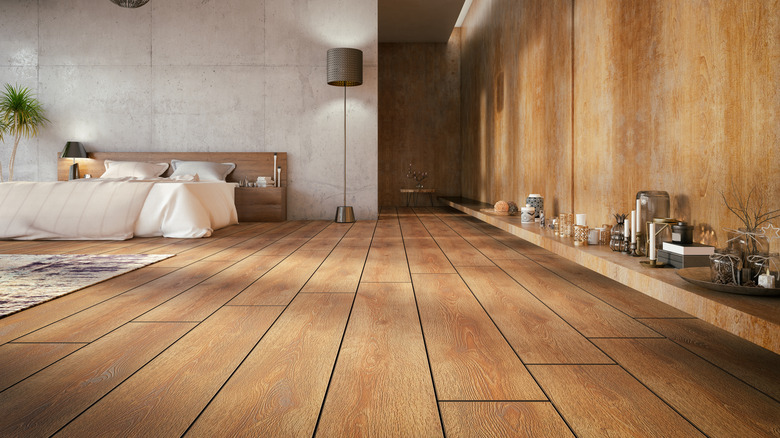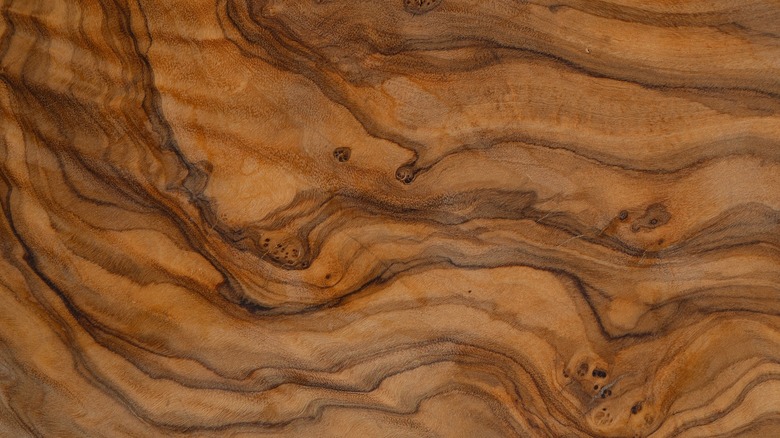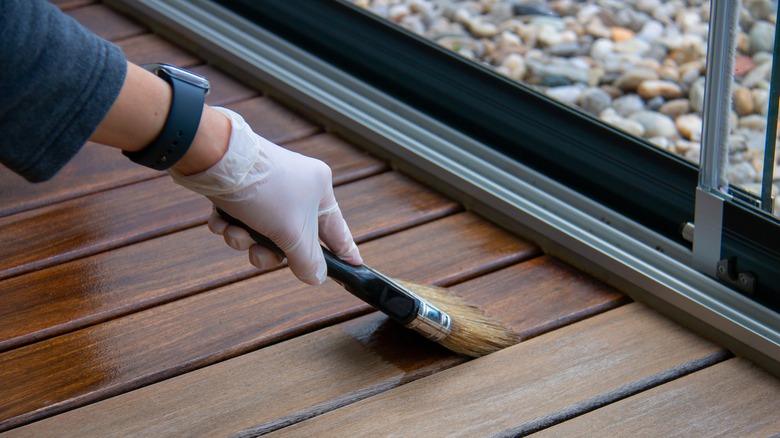Is Olive Wood Flooring Right For Your Home? Here's What You Should Know
There's a universal truth when it comes to selecting the perfect flooring for your home: Hardwood will always be the right choice. Still, you may find yourself obsessing over the grain pattern, stain color, or the difference between solid and engineered wood flooring before selecting the flooring that's right for you. If that sounds familiar, then you may want to consider olive wood flooring. With its rich, creamy, and rare grain, olive wood can breathe sophistication and depth into your space with an easy application that quickly morphs into your floor. Depending on a few different factors, olive wood flooring may or not be right for you.
Olive wood derives from the Olea capensis and Olea europaea trees, which originated in Eastern African and European countries near the Mediterranean. Over time, woodworkers took note of this quality wood and began using it to make things, like tables. Today, olive wood continues to be a durable and sustainable material that some homeowners choose to refine their flooring.
But it's not that easy to decide whether or not to install olive wood flooring, as the material comes with some downsides. However, knowing more about the pros and cons of this material will help you make an informed decision for your home.
Pros of olive wood flooring
Simply put, the visual appeal of olive wood can not be replicated. Olive wood is praised for its rich color and dense texture. The sapwood which forms over olive wood typically appears as yellow and brown streaks that add a contrasting dimension to traditional hardwood, which can be tan or brown in color. While the rare wood requires a gentle protocol of scraping and sanding, it is fairly easy to clean these floors if your household isn't prone to too much damage. Additionally, olive wood is easy to glue down, especially if you're completing a DIY flooring project by yourself.
When cut, the wood carries a sweet and fruity smell that will be sure to pleasantly catch your attention. However, while olive wood is a relatively sustainable material to use indoors, there are a few cons to be aware of before selecting olive wood flooring.
Cons of olive wood flooring
Unfortunately, there are a few cons to look out for when purchasing olive wood flooring. For starters, although the lumber that olive wood is made from is strong and dense, it's not ideal for outdoor or outdoor-adjacent settings. Olive wood is sensitive to insect attacks and the environmental factors that can impact wood, like water and mud. Well-seasoned olive wood makes hardwood flooring visually appealing, but it can also be victim to scratches, burns, and rotting. If you live in an environment where olive wood might be susceptible to these elements, then it may not be right for you.
Additionally, too much exposure to the sweet and fruity scent of olive wood can irritate the eyes, skin, and even the respiratory system — this usually happens during installation. If you choose to move forward with olive wood flooring, be sure to take safety measures, including (but not limited to) eye goggles, gloves, and a face mask.


